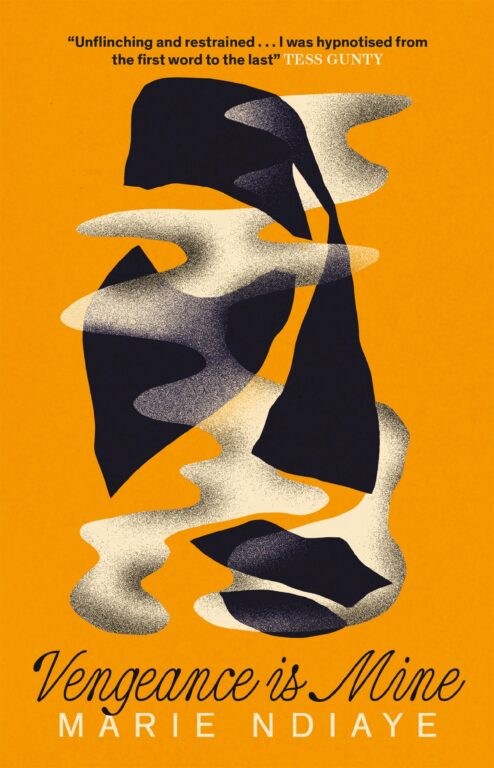Freezing rain had put the tram out of service when she went home that night.
Had it been only the day before, feeling her shoes slip on the frozen pavement, her first thought would have been for Sharon.
I hope she managed to catch the tram in time, Me Susane would have told herself, not liking to see her housekeeper ride off into the cold and the dark on her bicycle.
But this night she didn’t think of Sharon, absorbed as she was in recalling every detail of Principaux’s visit, already feeling anxious when she realised that some of his words hadn’t indelibly fixed themselves in her memory (had he said ‘my wife’ or ‘my spouse’, had he used her first name or did Me Susane think she remembered it that way because she’d read the name ‘Marlyne’ in the newspaper?), impatient to be back in her apartment so she could write down everything she had left in her head.
Who was Gilles Principaux to her?
And so, opening the door and finding every light ablaze in the hallway, the dining room, and the kitchen, she was briefly afraid, having forgotten that Sharon might still be there even with the tram shut down, despite Me Susane’s many reminders that she was free to go home whenever she thought best, whether the work (of which there was, in truth, so little) was finished or not.
Me Susane had always said or suggested to Sharon that she would rather know Sharon was tranquilly looking after her children, helping them with their homework and judiciously thinking of their futures, than find her working here late in the day.
It makes me uncomfortable, Me Susane didn’t dare tell her, that you think it necessary to scour a bath I never soak in, to give a weekly washing to windows that are already clean and that I rarely look out of, and to scrub a toilet that I scrub every day so as to spare you any contact with my intimate functions, yes, Me Susane didn’t dare tell her, it makes me very uncomfortable that you take my wish to employ someone to look after my interior so literally and that, in your uprightness and integrity, you somehow manage to spend hours putting the finishing touches to a job that, out of modesty and consideration, I’ve already seen to, it makes me uncomfortable, yes, Me Susane could not tell Sharon, she who until recently had never felt the need for a housekeeper, she who even professed an insurmountable prejudice against that need.
Sharon, I employ you as an act of militancy, to help you and to further a cause I support, so you don’t have to prove to me how scrupulous, honest, and irreproachable you are, as if you fear I might not be satisfied with your work, I always will be, Sharon, because in fact there’s nothing I actually ask you to do, Me Susane did not say to her, again out of consideration, but of a different sort.
Her heart had not yet recovered from its surprise when Sharon came to meet her in the hall.
Me Susane gave her the usual quick hug, she could feel her heart beating against the mute, serene, imperturbable breast that was Sharon’s, Sharon who never physically showed any sign, ever strong, fatalistic, and upbeat, that her life might be harder than Me Susane’s.
Sometimes Sharon seemed even to pity her.
Or so Me Susane liked to joke when she was invited out to dinner and told herself she had to pay her way with funny stories, since she never had guests herself.
She would cry out, heated and waggish, japing and pained:
‘Can you imagine, my Sharon doesn’t envy me at all, quite the contrary!’
And her friends would laugh, and then they would put on serious faces as they tried to understand what could stop Sharon from grasping how far Me Susane outstripped her when it came to happiness, what could stop Sharon from realising that she should wish she were Me Susane instead of who she was, an undocumented Mauritian, blessed but also encumbered with two children of uncertain future and, Me Susane believed she had gleaned, a deeply depressed husband.
But wasn’t all that just a jumble of speculation?
Because the face Sharon showed her was never anything but tranquil, and her heart beat softly, almost imperceptibly, when Me Susane embraced her, her own savage heart vainly trying to rile Sharon’s, to fill it with her own fervour and revolt – but why?
Me Susane couldn’t say.
‘Sharon, you should have gone home, they’ve shut down the tram for the night.’
Me Susane turned off the riotous lights beaming down from the ceiling.
Sharon, you don’t have to switch on every light in the apartment, Me Susane didn’t say either, because that mark of respect, that show of thoughtfulness you think you have to offer your employer when she comes home late and tired by dazzlingly illuminating her entrance, none of that suits my spirit of frugality, economy, and temperance in every act of daily life, no, Sharon, really, switch on only the lights you can’t do without for your work, Me Susane would never, absolutely never, tell her.
She was so fond of Sharon that she found these little vexations not worth the risk of seeing even the shadow of a disappointment or an anxiety in the young woman’s green-grey eyes.
Me Susane couldn’t bear Sharon fearing anything that came from her.
I work for you, Sharon, I will never inflict the slightest unpleasantness on you, and I will never give you an order, said Me Susane mutely, hoping those charitable, uncontained, ardent thoughts would stream from her mind like eggs in a spawning bed, where Sharon’s own thoughts, her unknowable emotions, would bond with Me Susane’s silent declarations and she would perhaps feel hope, the result of an immaculate, unspoken fusion of fear and trust.
I’ll never let you down, Sharon, believe in me, thought Me Susane, as hard as she could.
‘I’m going to drive you home,’ she told Sharon. Seeing her sudden unease, she added:
‘I told you just now, the tram isn’t running, there’s ice on the tracks.’
‘That won’t be possible, thanks, I have my bicycle, we can’t fit it in the car,’ Sharon shot back.
Why did she often give Me Susane the feeling she wanted nothing to do with her outside the walls of this apartment?
Did she believe, did she fear (and why?), that Me Susane was hoping to become her friend?
Me Susane had no such ambition.
But she’d once happened upon Sharon and her children in a supermarket at the Lac shopping centre, and she had been stung to see Sharon very clearly pretending she hadn’t spotted her.
Sharon, you’re not placing yourself in any danger by consenting to recognise me, to say hello to me, to introduce me to your children, who are every bit your equals in beauty and grace, what harm could I possibly do you, how could I ever seek to make you the victim of some evil spell?
I have no dark motive, Sharon, for employing you, it complicates my life, and I don’t like to be served.
I’m simply trying to do good, Sharon, in the way that I can.
Me Susane took off her ice-spangled jacket and hung it on the rack in the entrance before Sharon could take it from her.
Tiny, thin-faced, narrow-shouldered, slim-hipped, as if she’d made the decision to take up only the most minimal space in this world, the young woman looked up with her vague, gentle, tortured gaze at Me Susane, who was tall and wide, imposing and assured.
‘I’ll take you in the car,’ Me Susane said carefully, ‘and tomorrow morning you can come back on the tram to get your bicycle.’
‘No!’ cried Sharon with a sort of fierce, unyielding anguish that shocked Me Susane. ‘That doesn’t work for me,’ Sharon went on, slowly, ‘but thank you, thank you, thank you.’
Me Susane raised her hand, conciliatory and humble, mortified.
Then, the incident forgotten (except by Me Susane, whose mind tended to wipe out her happiest memories and to remember forever what there was no need to recall), Sharon put on an enthusiastic voice to describe everything she’d accomplished during her working hours in this apartment on the rue Vital-Carles, an apartment certainly grand in its appointments (herringbone parquet floors, seventeenth-century fireplace, tall windows with little panes) but of middling surface area, forty square metres, in all likelihood carved from an imposing residence divided up long ago for an easier sale.
Me Susane knew there were no rational grounds for the presence in her apartment of a vigorous, tireless, driven Sharon, determined to prove that her capacity for hard work was being put to a useful and even necessary purpose.
Me Susane knew she didn’t need Sharon’s energy, youth, or abilities, she knew full well that those virtues were wasted on her apartment, where there was literally nothing to do.
But what choice did she have?
She was handling Sharon’s case, her application for residency papers for her and her family.
‘Well then, I’ll see you tomorrow,’ she said. ‘Thanks, Sharon, and do be careful on your bicycle.’
Suddenly she clasped Sharon’s little hand, pulled it toward her, and whispered:
‘You know what, I’m going to be taking on a big case. A woman who killed her three children, very young children, just little kids, you understand.’
Sharon snatched her hand away, a leap backward protecting her from Me Susane, from her breath, her words, perhaps her strange intensity.
‘That’s horrible,’ she mumbled in a cold, disgusted voice.
And it was as clear as if she’d closed her eyes and put her hands over her ears: Oh, I don’t want to hear another word! She turned away, took her jacket from the coat rack, bent down to pull on her fleece-lined boots.
Me Susane then noticed that the undersized collar of her jacket, which was itself much too light for winter, did not cover Sharon’s fine, golden, palpitating neck.
She hurried to her room and came back with an orange cashmere scarf.
Me Susane’s mother had given it to her and she’d never worn it, too unsure of her own radiance to display that fire at her throat.
She wordlessly tied it around Sharon’s neck.
I’m not saying anything, Sharon, because I don’t want you to turn down my scarf, I don’t want to argue about the possibility of you catching a chill tonight, riding your bicycle all the way back to Lormont.
Sharon kept her mouth shut too, docile as an impotent child forced to endure the inexplicable violence of adults, and as she tied the two ends of the scarf at Sharon’s nape Me Susane could or thought she could feel the young woman’s delicate skeleton quivering in fright or repulsion beneath her fingers.
Only the day before, she would have been terribly hurt by that.
What is it in me, Sharon, that stops you from liking me even as I treat you with the greatest respect and see to your case out of the goodness of my heart, since I won’t be charging you for my work? Does it never occur to you, Sharon, that I could have refused to take your case without payment, which would have left you helpless and alone, you don’t have any money, I wouldn’t have dealt with your problem, I never would have got involved in your life? How, Sharon, can you not understand the way things are? How can you be so devoted and so fickle, so meticulous and so ungrateful, so sensitive in general and so brusque with me? Am I not, Sharon, a woman exactly like you?
Yes, only the day before, she would have been so shaken by Sharon’s behaviour that sadness and rancour would have filled her as she ate the dinner her employee had made.
She would have dined on spitefulness, on sorrow, a dish of tears, hers, shameful and humiliating, unable to enjoy the fare Sharon had so exquisitely prepared, too overcome even to console herself with the thought that Sharon could never have cooked like this for someone she hated, which could only mean that Sharon didn’t hate her, and Me Susane was being ridiculous and oversensitive.
But that evening she calmly let Sharon set off for home in her furtive, tense, hostile way, as if some grave, unspoken conflict had erupted between them.
She closed the door, and immediately her thoughts wandered far away from Sharon.
She reheated the fried rice, the shrimp with ginger, the sautéed pork with garlic, the very tender carrots.
And although, her thoughts fixed on Principaux, she’d forgotten Sharon, or rather relegated her to a corner of her mind where nothing carried any weight, she enjoyed Sharon’s dinner as she rarely had before.
Image © Quinn Dombrowski









